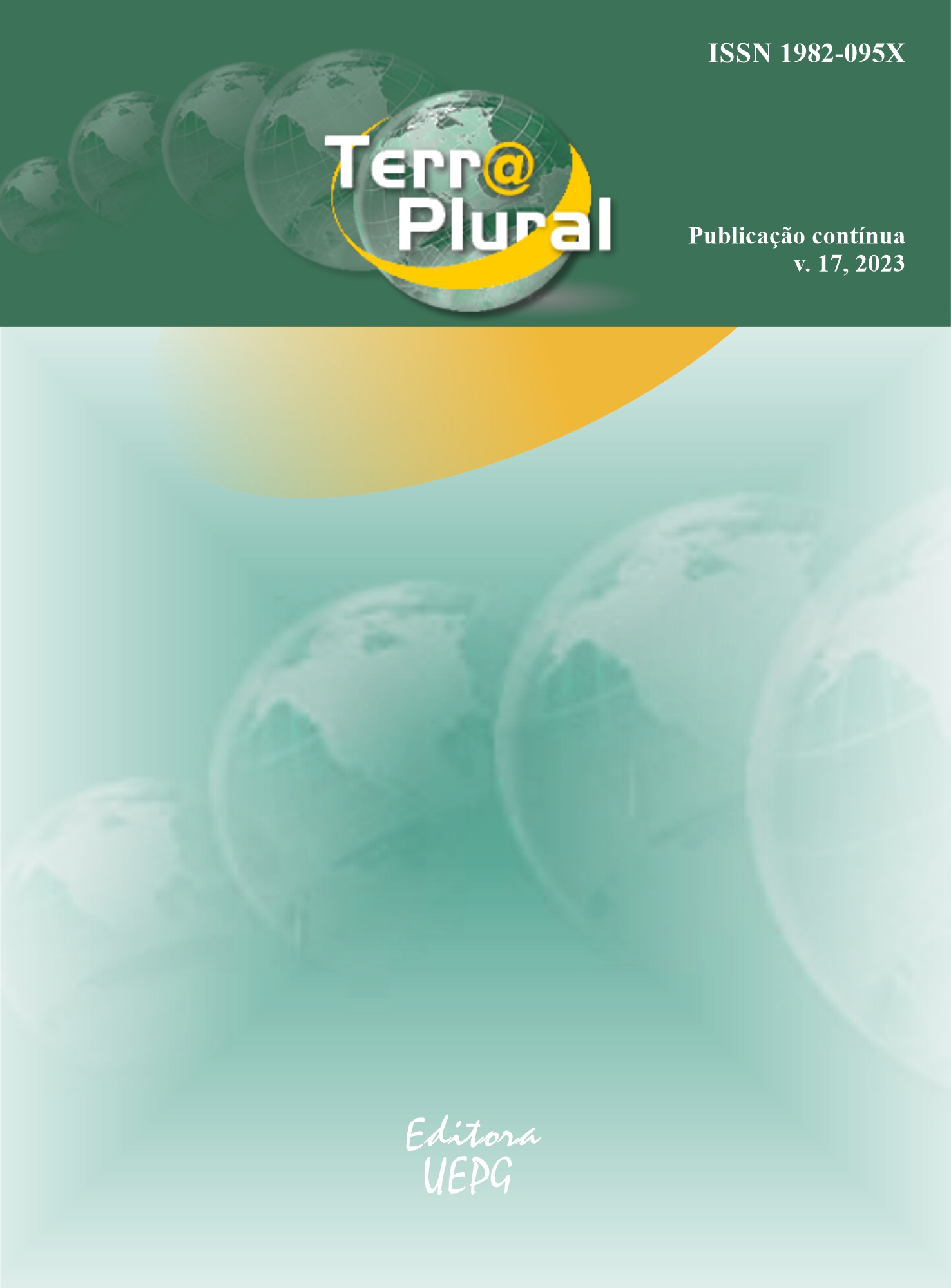Teoria e metodologia do material experiencial
geograficidades e espacialidades mediadas pelas experiências juvenis no espaço escolar
DOI:
https://doi.org/10.5212/TerraPlural.v.17.2321025.002Palavras-chave:
geografia humanista, espacialidade, subjetividades, fenomenologiaResumo
As discussões em torno da educação e da geograficidade do espaço escolar contemplam como os educandos experienciam esse espaço normatizado e controlado pelo Estado. Embora atemporais, tais discussões repercutem hodiernamente a fragilidade de tratar os sujeitos que habitam esse espaço de forma homogênea, negligenciando suas subjetividades e identidades. Sendo assim, a Geografia Humanista, através da fenomenologia e hermenêutica, adere-se ao estudo como forma de acessar a experiência socioespacial dos sujeitos, ou seja, como o ser-aí (dasein) e o habitar (dwelling) heideggerianos expressam formas de ver e estar no mundo. Através da noção de Temas, o estudo propõe identificar possibilidades de conectar essas experiências de mundo com as normatizações que controlam o devir e o habitar do espaço escolar, sendo nesse ínterim que são interpretados temas como obrigação, profissionalização, socialização, conhecimento e técnica. A interdisciplinaridade e o vivido dotado de subjetividades apresentam-se como meios alternativos de contrapor o tratamento positivista e generalizador que sustenta os materiais de controle/orientação do espaço escolar.
Downloads
Downloads
Publicado
Como Citar
Edição
Seção
Licença
Copyright (c) 2023 Lucas Renato Adami, Almir Nabozny

Este trabalho está licenciado sob uma licença Creative Commons Attribution-NonCommercial-NoDerivatives 4.0 International License.
Os autores mantêm os direitos autorais e concedem à revista o direito de primeira publicação, que permite o compartilhamento do trabalho com reconhecimento da sua autoria e publicação inicial nesta revista. Os autores autorizam a distribuição para indexadores e repositórios institucionais, com reconhecimento da sua autoria e publicação inicial nesta revista. Autores são estimulados a distribuir a versão on line do artigo (por exemplo, em repositórios institucionais ou em sua página pessoal), considerando que isso pode gerar alterações produtivas, bem como aumentar o impacto e as citações do artigo publicado.

Este obra está licenciado com uma Licença Creative Commons Atribuição 4.0 Internacional.















